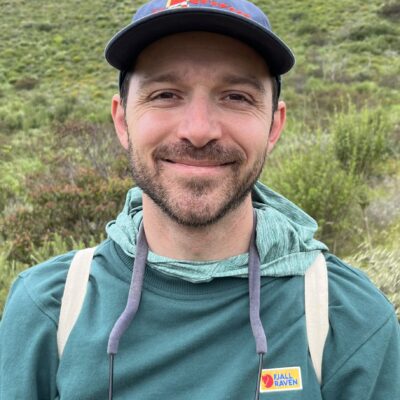In the gospel of John, Jesus makes a number of proclamations about himself that identify his role and purpose. He is the “bread of life, the light of the world, the way, the truth and the life.” And famously, he is the “good shepherd.” Even growing up as a non-Christian, I knew that Jesus was identified by this role. There were all those soft-focus prints of Jesus carrying lambs in his arms or across his shoulders or sitting in a field amongst a flock of snow white sheep. It is one of the most prevalent Christian images in history, found in stained glass windows in churches all over the world.
It’s a pretty familiar image from the Bible. Many of the leaders of God’s people were actual shepherds, like King David. Some of them were labeled as bad shepherds because they took advantage of the people and looked after their own interests. But Jesus calls himself the good or the model shepherd. He gets the inspiration for his role directly from God. He is unique as a leader and lover of people. He is the good shepherd.
Like me, you may have known some inspirational, dedicated and amazing people who played an important role in your life. It may have been a parent or grandparent, a beloved teacher, a mentor or boss, maybe even a clergy person who influenced and inspired you. Some of those people may even have been public servants and politicians.
Yesterday I was invited to a walking tour of Ballard with Mayor Ed Murray and his staff. He takes Saturday mornings to get acquainted more intimately with the neighborhoods in the city by walking and talking with a variety of people who really care about what happens here. He wasn’t formal or fancy. He didn’t make any speeches or promote himself in any way. His main purpose was simply to listen, to be present and to understand what is important to the people in this city. It was an honor to show him our chapel, to talk about the ministry of this congregation and to point out the SLUG garden. Listening to the many others who also spoke from their perspective made me realize how complex it is to be in his role and how great the demands are. I haven’t been in town long enough to know about his policies and politics or even to decide if I would vote for him but I was impressed that he took the time to really listen to each of us.
This past Sunday through Tuesday I was at a joint Lutheran/Episcopal clergy conference with lots of very fine leaders including our own Bishop Greg Rickel and Bishop Kirby Unti from the Lutheran Synod. Bishop Unti preached on this passage from John and it was good but it made me really nervous. He was identifying our role as clergy with the shepherding role. He talked about how essential it was to the church for us to serve our people as shepherds. He tried to encourage us, knowing that it can be difficult at times to love and lead a church especially when churches go through struggles, conflict and decline. I know he meant well but I started feeling more and more uncomfortable.
And this is why. No matter how wonderful my mentors and leaders have been, how outstanding or caring or brilliant or devoted, all of them have failed me and others in some way. It’s so tempting to put too much trust or reliance on someone we admire or rely upon. It’s so easy to have it turn into hero worship or to set our expectations too high. No one is perfect. No one can deliver on every promise or hope. And we can so quickly turn from admiration and acclaim to disillusionment and disgust.
Very early in my ministry a very wise member of the congregation who served on my shepherding committee told me never to “trust my press releases.” She said you’re never going to be as good as some people make you out to be and you’re never going to be as bad as some folks decide you are. No leader can make all the people happy or satisfied all the time. No leader is ever completely responsible for the success or failure of the venture they are engaged in. Every leader will make mistakes, have bad days and let people down.
Let me be very clear with you and myself. I am not the good shepherd. This is very good news for all of us because there is another who really is the good shepherd. Jesus is the shepherd of our little flock at St. Luke’s. He is the one who provides for us rest and refreshment in the midst of a stressful and difficult world. The peace in this place comes from the peace of Christ upon, within and among us. It is like the sweetness of green pastures and the quiet of still waters.
He is the good shepherd. When we are threatened with danger and difficulty, he stands with us. He doesn’t run from the overwhelming threat of the wolf at the door. He isn’t intimidated by our financial situation, our challenges or the things that we fear. In our darkest moments, in our sleepless nights, when it feels like all is lost and no one cares, he does not run away. The good shepherd will not desert us or leave us alone. He has endured the worst that the world can dish out and still he loves us, he believes in us, he will not abandon us.
He is the good shepherd. He knows us and we can know him. We can hear his voice calling to us as we listen and discern his purposes for us. This happens in so many ways. When we act as he acted by loving our neighbors, by helping those in need, by following in his footsteps we find ourselves responding with the same impulses that guided him. When we dwell in the quiet of our souls and listen with the ears of our hearts we hear the same voice speaking to us that spoke to Jesus letting us know that we too are beloved of God, called to love others.
He is the good shepherd. He sets a table and offers himself as our food. This great mystery helps us become ever more like him. He lays down his life so that we might experience our lives to the fullest.
But there’s something we may miss when we hear this in English with our 21st Century American ears. You may be thinking that this describes the relationship between the individual and God, Jesus and me, but all the pronouns are plural. The Good Shepherd is there for the flock and what we know and experience of God is in relationship to others. God speaks to us as a community and we hear God best when we listen to each other. God provides for us through one another and our welfare is tied to the welfare of others. We don’t have to do it alone and we can’t make it on our own. We are part of the flock that belongs to the Good Shepherd.
It gets even more complicated when Jesus mentions that there are other sheep we don’t have any clue about who also know his voice and who he’s listening to. It means that we are linked with people we may not even like or who are not like us. It means that the network of relationships God has placed us in is so vast and complex that we cannot afford to demean or diminish anyone whether they be a close friend or neighbor or a total stranger or even an enemy. When the Good Shepherd does his walk through the neighborhoods he doesn’t ignore a single soul. Each one is precious. He knows each one of us as if there were only one of us.
One of the most unique experiences I ever had as part of the flock where Christ is the shepherd was in New Zealand. The first people to settle in New Zealand are the Maori. When they heard the gospel many of them became Anglican Christians. In 2005 I was present as they chose the Archbishop of the Maori people. They gathered together at the central Marae or gathering place for their people for 3 days. During that time they listened for hours to everyone who wanted to speak. They prayed and worshiped together. They ate all their meals together. No one left the building. I didn’t see any cell phones or laptops in use. It was a concentrated exercise in community discernment by dedicated, prayerful people. They only took a vote when everyone was ready to do so.
It was an immense privilege to be one of only 6 non Maori in that gathering of over 400 people. I was so impressed by the serious way they engaged in the process but I wasn’t prepared for what happened at night. Because no one left, there had to be provision to sleep hundreds of people. Every night huge rooms were opened. Woven mats covered the floors in long rows. One room was for men and one for women. When it was time to go to bed, everyone chose a place on the mat.
The Reverend Canon Britt Olson



